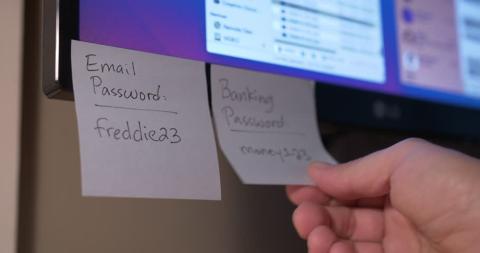
The single most important question you should be asking
"Am I using strong, pseudo-random passwords for all of my accounts?"
Seriously. The smartest thing you can do to improve your security online is to not use the same or similar passwords on your different online accounts. This is because if one unsecured account — maybe a restaurant's online ordering service — gets hacked and your password gets stolen, suddenly all your accounts are exposed.
1
Password should be difficult to guess
- Avoid using parts of your name or email address
- Don't include personal information like your birth date, names of family members or street addresses
- Consecutive numbers are a bad idea. Do not use"123456" or any other common combinations.
- Steer clear of familiar sequences, phrases and slang terms.
2
Passwords should be complex
- Add numbers to your password, but again not familiar sequences (123)
- Add special characters to your password (!@#$%^&*)
- If you do uses an actual word, consider replacing some letters with special characters or numbers. (A=@, I=!, S=5 etc.)







